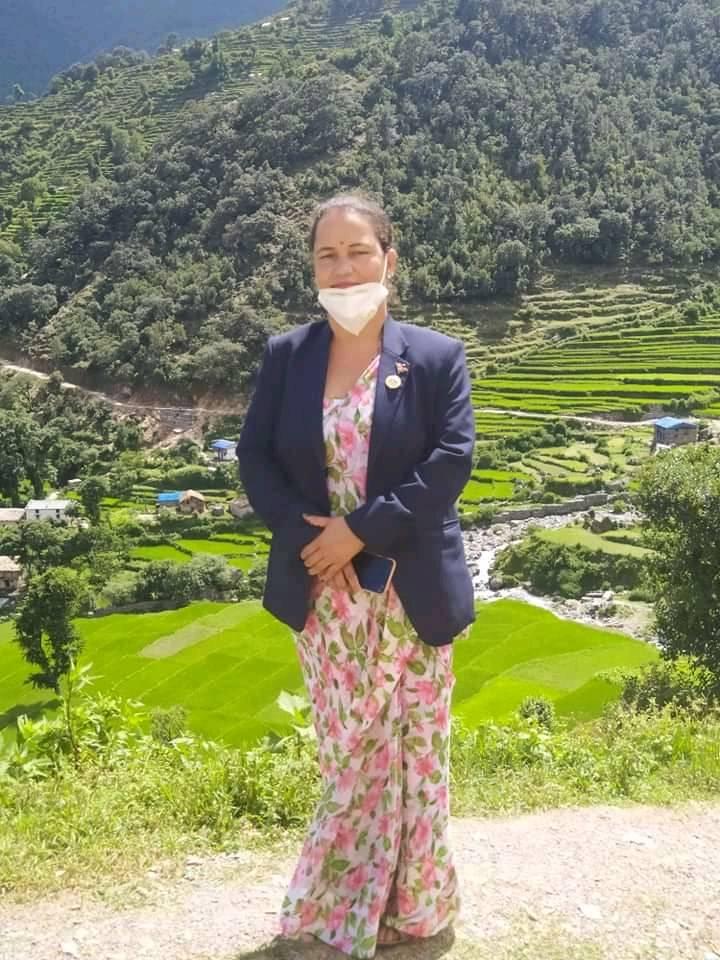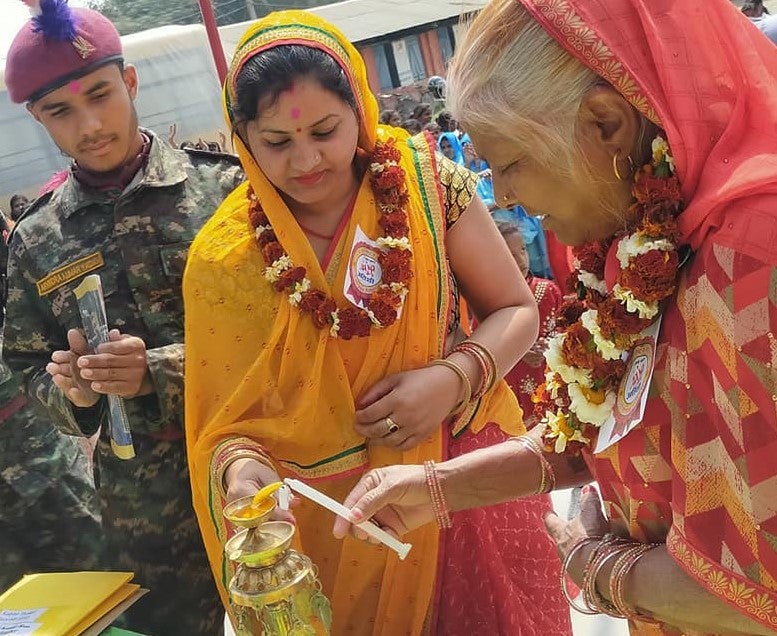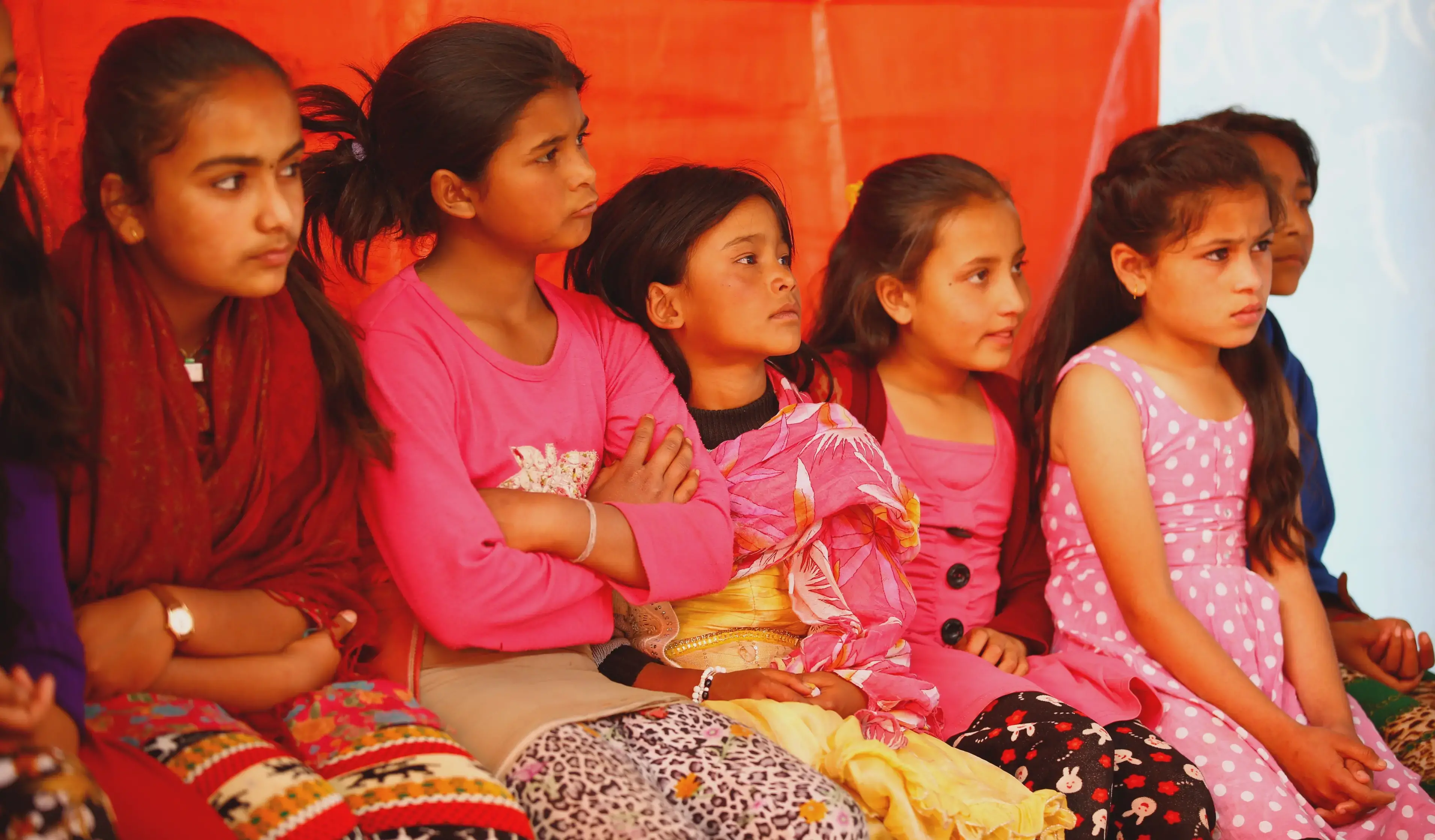This International Women’s Day, we celebrate women in leadership. Meet four women Deputy Mayors who are paving the way for a gender-equal society in Nepal: Kunti Saud Budha (Deputy Mayor of Khaptad Chededaha Rural Municipality, Bajura), Birmala Devi Budhthapa (Deputy Mayor of Sanphebagar Municipality, Achham), Anshu Singh (Deputy Mayor of Raj Devi Municipality, Rautahat), and Sabina Chaudhary (Deputy Mayor of Ramdhuni Municipality, Sunsari).
Following their participation in a UNESCO-UNFPA-UN Women Joint Programme training around gender equality, comprehensive sexuality education (CSE), and the prevention of and response to gender-based violence, these four women are now speaking up to ensure that future generations of young women are empowered in and through education.
What were some of the hardships you faced as a girl growing up in Nepal?

Kunti: When I was 13, I had my first period and had to live in a cowshed for 22 days. I was scared because I had heard other girls had been killed by wild animals or had sheds collapse on them at night. To avoid staying in a cowshed, I told my family that I no longer had my periods. I heard from other women that some girls do not experience menstruation for a few years after their first one, which gave me the idea to hide my own.
Birmala: I was married at age 16 and became pregnant by the time I was in tenth grade. I had to drop out of school to give birth and did not return to school until after I had raised three children. It was difficult juggling my roles and responsibilities as a young mother, wife, daughter-in-law and student.
How has the training you attended as part of the Joint Programme helped you as a woman leader?
Kunti: After becoming Deputy Mayor, I took part in a one-week programme on the implications of child marriage on girls’ education organised by the Joint Programme. This motivated me to launch young girls’ clubs in schools to abolish child marriage in my municipality.

Anshu: The Joint Programme’s training made me realise that when women learn about their bodies and health, they become more courageous and are able to stand up for themselves and speak out against the violence they face.
What words of encouragement do you have for future women leaders?
Kunti: The more we speak up, the closer we will get to creating an ideal society where no one is discriminated against based on their caste, gender, or age.
Sabina: We need to guarantee the right to education for every girl and woman regardless of their caste, economic status, or family background, and provide them with equal opportunities for education. We have a responsibility to ensure the right to education for all future generations of young women.
About the UNESCO-UNFPA-UN Women Joint Programme
Empowering Adolescent Girls and Young Women through the Provision of Comprehensive Sexuality Education and a Safe Learning Environment in Nepal is a Joint Programme led by UNESCO, UNFPA and UN Women with support from Korea International Cooperation Agency (KOICA) aiming to empower girls and young women through an integrated approach to education, health, and gender equality.
Through the programme, nearly 2,000 government officials and education stakeholders, both women and men, were trained on topics such as sexual and reproductive health, gender equality, and prevention of and response to gender-based violence.



